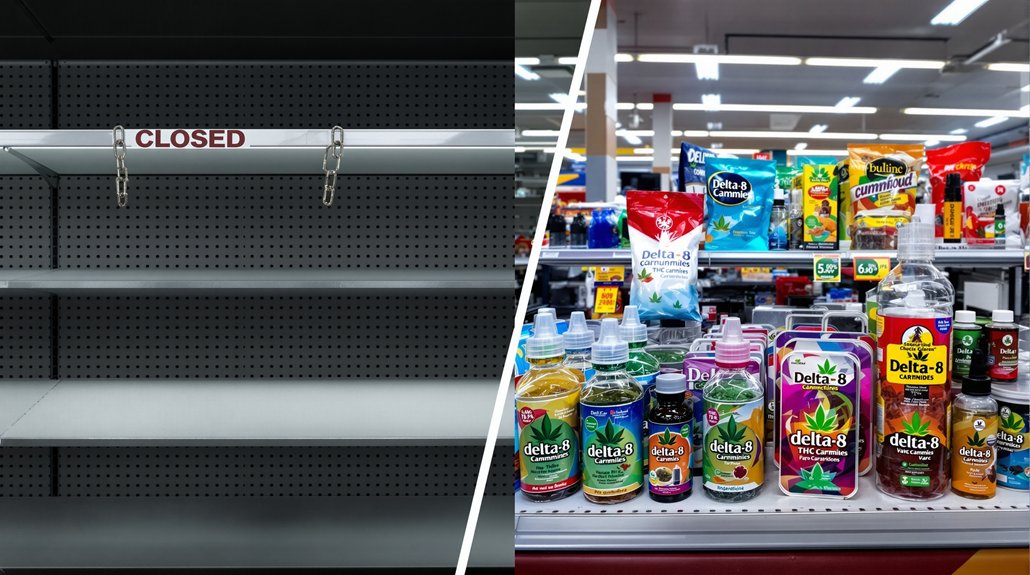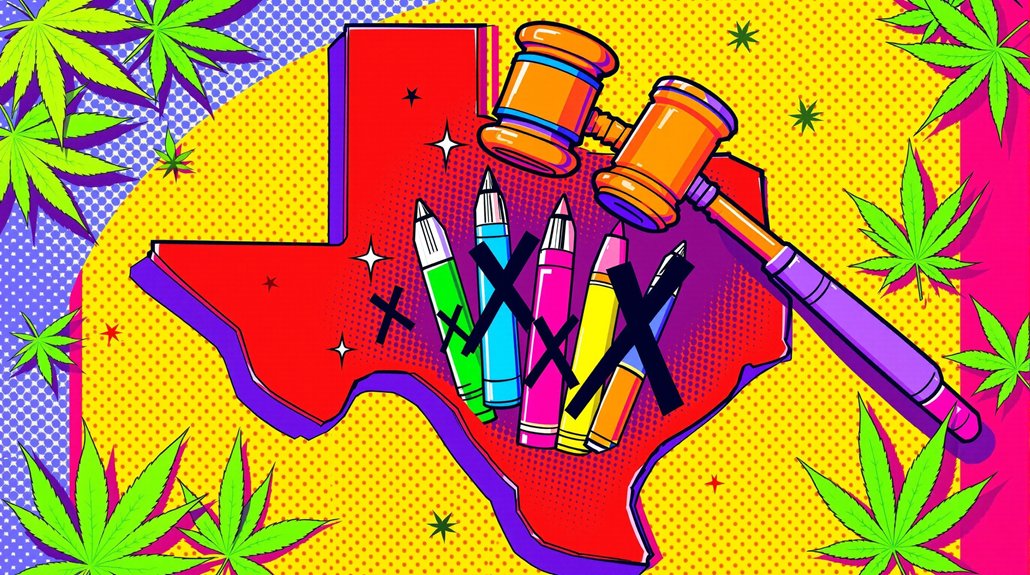While medical marijuana laws continue expanding across states, travelers attempting to fly with cannabis face an unwavering federal reality in 2025. Marijuana remains a Schedule I controlled substance under federal law, making airports and aircraft zones where state legalization simply doesn’t apply. The Transportation Security Administration operates under federal jurisdiction, creating a legal maze that even valid medical marijuana cards cannot navigate.
Federal law creates an inescapable legal maze for cannabis travelers, where state medical cards hold zero power at airports.
TSA agents aren’t actively hunting for cannabis during security screenings. Their primary mission focuses on aviation security threats, not drug interdiction. However, when marijuana surfaces during routine screening procedures, agents must refer the discovery to law enforcement. This mandatory protocol applies regardless of whether travelers possess state-issued medical cards or are flying between two states where cannabis is legal.
The agency treats medical and recreational marijuana identically under federal guidelines. No distinction exists between a cancer patient’s prescribed cannabis and recreational products purchased at dispensaries. State medical marijuana cards provide zero federal protection at airports, leaving patients in legal limbo despite their legitimate medical needs.
Only specific cannabis products receive TSA approval for air travel. Hemp-derived CBD containing 0.3% THC or less passes security screening when properly labeled. FDA-approved cannabis medications like Epidiolex, Marinol, Syndros, and Cesamet are permitted with original pharmacy packaging. These narrow exceptions highlight how restrictive federal aviation policies remain.
Airlines further complicate matters by maintaining their own cannabis prohibitions. Most carriers explicitly ban marijuana transport regardless of state laws or medical status, adding another layer of restriction beyond federal regulations. Passengers face potential consequences from both government authorities and airline policies.
Discovery outcomes vary depending on local law enforcement responses. Some jurisdictions may decline prosecution for small medical amounts, while others pursue federal charges. This inconsistency creates unpredictable consequences for medical marijuana patients who miscalculate the risks. The TSA’s response remains completely uniform across all states and airports, regardless of local marijuana legalization laws.
Cannabis amnesty boxes at certain airports offer last-minute disposal options before security checkpoints. These containers acknowledge the confusion surrounding conflicting state and federal laws while providing travelers a consequence-free disposal method.
The fundamental issue remains unchanged in 2025: no legal mechanism exists for transporting state-authorized medical marijuana via commercial aviation. Even flights between two cannabis-legal states cross federal airspace, triggering federal jurisdiction throughout the journey. Medical marijuana patients must explore alternative transportation methods or risk federal law enforcement encounters. Ground transportation between neighboring legal states generally poses lower risks for medical marijuana patients compared to air travel.
Until federal marijuana classification changes or specific aviation exemptions emerge, medical cannabis patients face continued restrictions regardless of expanding state legalization efforts.










